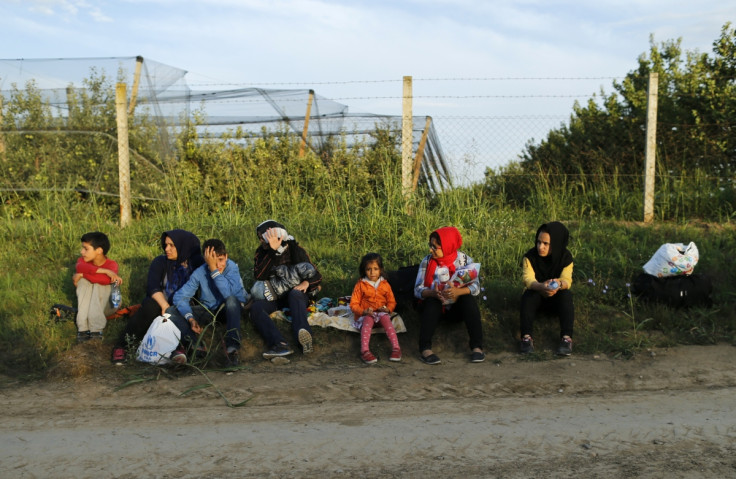Migrant crisis: Syrian refugees face minefields threat at Croatia-Serbia border

Croatia has sent mine-clearing experts to the border with Serbia – where refugees are crossing on foot after Hungary's decision to seal the frontier – because of fears about the threat posed by thousands of landmines left over from the 1991-95 war.
An official at the Croatian Demining Centre told Reuters that police asked the organisation to supply a team to the border area in eastern Croatia. Thousands of landmines are left over from Croatia's independence war that followed the collapse of federal Yugoslavia in the early 1990s and have killed more than 500 people over the past 20 years, according to IRIN News.
Syrian refugees are discussing the dangers of the Croatian route on a Facebook group called The Stations of the Forced Wanderers. Refugees were advised to stay on roads and not pursue illegal border crossings, which could be mined.
Spread maps showing minefields at CRO/SRB border & warn #refugees to only use highways & avoid walking cross fields pic.twitter.com/SKgZ6RKJXl
— MigrationAid Hungary (@MigrationAidHu) September 16, 2015Croatia's prime minister Zoran Milanovic criticised Hungary's crackdown on asylum seekers, and promised free passage through his country. "We are ready to accept and direct those people," he said, according to AP.
Milanovic added that migrants and refugees "will be able to pass through Croatia and we are working intensively to enable that" and blasted Hungary's newly-finished fence along its border with Serbia, a major entry point for refugees making their way in the EU.
"Barbed wire in Europe in the 21st century is not an answer, it's a threat," he said, adding that 150 people already crossed into Croatia to avoid Hungary's closed border.
Hungary's prime minister Viktor Orban, an ultranationalist, declared a state of emergency in two of the country's outer regions and announced he was ready to deploy the army to patrol its frontiers in a crackdown against migration.
Authorities have been given special powers in dealing with the migrant influx in the southern districts bordering Serbia, government spokesman Zoltan Kovacs told a press conference. The move potentially enables the government to use the army to seal off the border, pending parliamentary approval. The military had already engaged in border patrol drills last week.
The announcement came as new regulations imposing harsh punishments on migrants and refugees crossing over from neighbouring countries entered into force. Under the new rules, entering Hungary illegally or damaging its hastily erected border fences – which are four metres high and 110 miles long – carries a possible three-year jail term.
A record number of asylum seekers have crossed into the country over the past few weeks, in a push to get in before the new laws came into being. More than 9,300 arrived on 14 August, the highest number of arrivals in a single day recorded by police since the beginning of the crisis. Another 5,600 had crossed from Serbia the previous day.
More than 200,000 migrants have arrived in Hungary since January, following a route that led them from Turkey to Greece and then up the Balkans. Most are headed to Germany and other northern European countries.
© Copyright IBTimes 2025. All rights reserved.




















